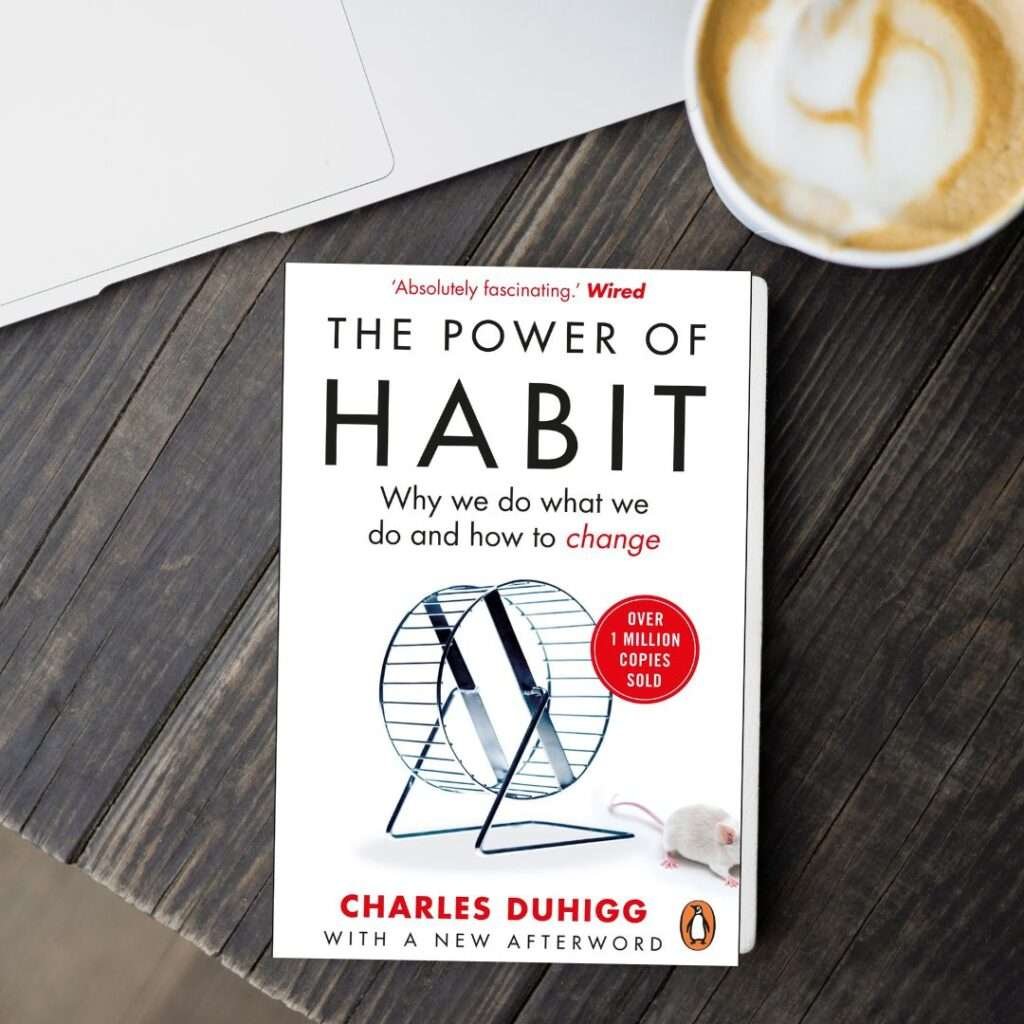Brief of The Power of Habit
The Power of Habit is a bestselling book written by Charles Duhigg that delves into the science of habit formation and how it shapes our lives. The book is a fascinating read for anyone interested in understanding how habits work and how to change them.
The Power of Habit starts by introducing the concept of the habit loop, which consists of a cue, a routine, and a reward. Duhigg explains how this loop is present in our daily lives and how it can be used to change habits. He also explores the role of willpower and how it is important in forming new habits.
10 Lessons from The Power of Habit
- Habits are the compound interest of self-improvement – small actions repeated over time can lead to significant progress.
- Habits are formed through a process known as “cue-routine-reward” – a trigger prompts a behavior that leads to a desired outcome.
- The “golden rule” of habit change is to keep the cue and the reward the same but change the routine.
- Willpower is a limited resource, but habits allow us to conserve it.
- Habits are not just personal behaviors, but also exist within organizations and societies.
- Habits can be positive or negative, and it is essential to identify and target keystone habits that have ripple effects on other areas of life.
- The most successful habit change comes from joining a culture where the desired behavior is the normal behavior.
- The brain’s craving for a reward is what drives habit formation.
- Habits can be changed, but it requires understanding the underlying cravings and creating a plan to address them.
- Habits should not be viewed as constraints, but rather as opportunities for self-improvement and growth.
One of the key lessons from the book is that small changes can lead to big results. Duhigg shares numerous real-life examples of how small changes in habits have led to significant improvements in people’s lives. He also explains that by understanding the habit loop, we can change our habits and create new ones that will lead to a more productive and fulfilling life.
Another important takeaway from the book is that habits are not just personal, but also organizational. Duhigg highlights how habits shape the culture and success of organizations, and how leaders can use this understanding to create a positive work environment.
The book also delves into the science behind habit formation, and how it is influenced by the brain’s reward system. Duhigg explains how habits are stored in the basal ganglia, a part of the brain responsible for automatic actions, and how this knowledge can be used to change habits.
In conclusion, The Power of Habit is a must-read for anyone looking to understand the science behind habit formation and how to change them. It is a well-researched and engaging book that offers practical tips and insights that can be applied to improve one’s personal and professional life.
About the Author
Charles Duhigg is a Pulitzer Prize-winning American journalist, author, and New York Times, reporter. He is best known for his book “The Power of Habit: Why We Do What We Do in Life and Business,” which was published in 2012 and has since become a New York Times bestseller. Duhigg has also written for the New York Times Magazine, the New Yorker, and other publications. He is a graduate of Harvard College and has a master’s degree from the Columbia University Graduate School of Journalism. In addition to “The Power of Habit,” Duhigg has also written “Smarter Faster Better: The Transformative Power of Real Productivity” and “The Habit Loop: How Habits Work and How to Change Them.”

The Power of Habit: Why We Do What We Do, and How to Change
Follow Reviewzade on Instagram for regular update. Click here for more book reviews.
Keywords: habits, habit loop, willpower, change, productivity, organizations, brain science




